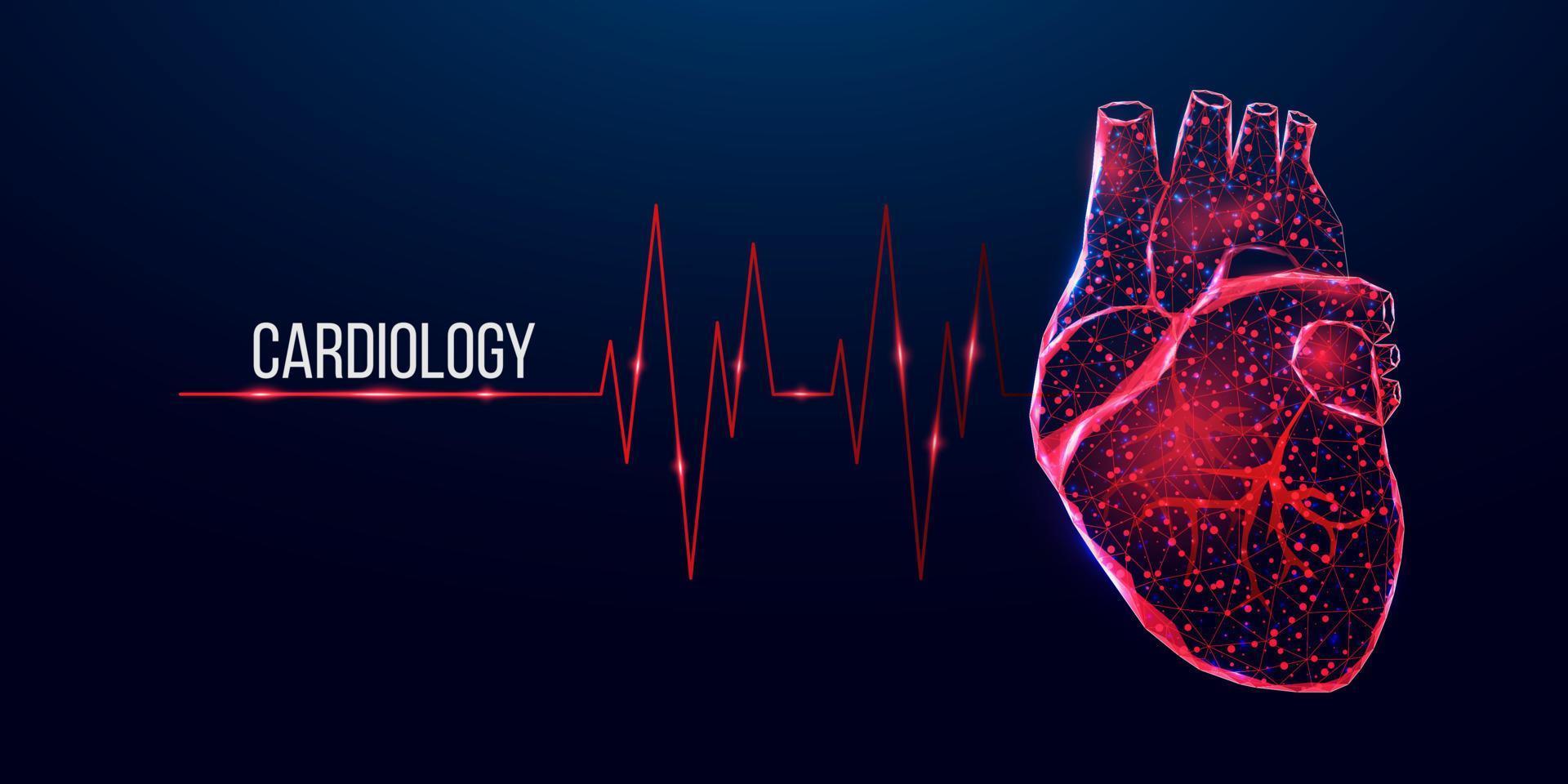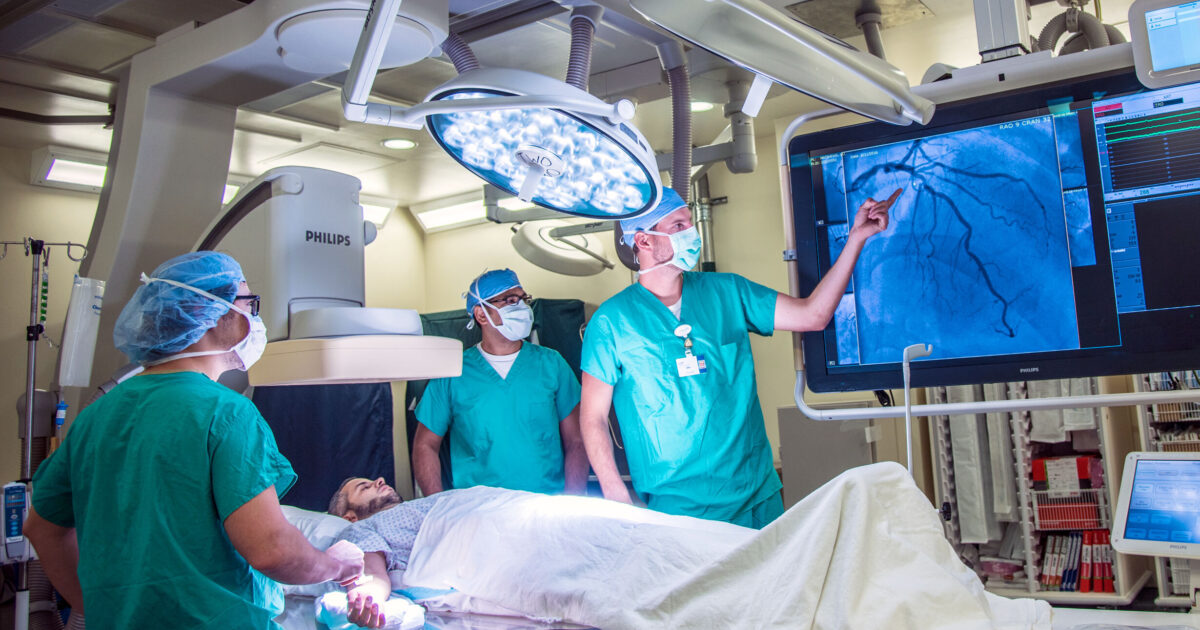Understanding the Importance of Cardiology in Modern Health Care Solutions
Cardiology plays an important function in contemporary health care, especially as heart condition remains to be the leading reason for death worldwide. Advancements in diagnostics and therapy have actually changed individual treatment, allowing earlier treatments and enhanced end results. Additionally, the shift towards preventive cardiology empowers people to handle their wellness proactively. As technology remains to progress, the assimilation of ingenious options may even more redefine cardiology's impact on public wellness, motivating a better assessment of emerging trends and their implications.
The Frequency of Cardiovascular Disease and Its Effect on Public Health
Heart condition remains the leading cause of death worldwide, its impact extends much beyond individual people to affect public wellness systems and economic situations. The high occurrence of heart illness places a substantial strain on health care resources, necessitating raised financing for avoidance, treatment, and recovery programs. Public wellness efforts must attend to risk elements such as excessive weight, cigarette smoking, and less active lifestyles, which add substantially to the climbing incidence of heart conditions.Moreover, the economic problem connected with heart problem is tremendous, encompassing not just direct medical expenses yet also indirect expenses associated to shed productivity and early mortality. Areas face challenges in handling these expenses, usually resulting in variations in medical care accessibility and outcomes. As the population ages and lifestyle-related risks continue to intensify, the urgency for reliable cardiology interventions becomes extremely important. Dealing with heart illness is not just a matter of specific wellness yet likewise an essential public health and wellness priority.
Breakthroughs in Heart Diagnostics and Imaging Techniques
Recent developments in cardiac diagnostics and imaging strategies have reinvented the field of cardiology, boosting the capacity to detect and keep an eye on cardiovascular disease. Methods such as cardiac MRI, CT angiography, and echocardiography have actually come to be progressively sophisticated, providing detailed photos of cardiac structures and functions. These methods permit the early identification of conditions like coronary artery disease, cardiac arrest, and valvular disorders.Moreover, developments in non-invasive diagnostics, such as wearable technology and remote surveillance gadgets, have empowered people and doctor. These devices help with real-time monitoring of heart rhythms and various other necessary indications, bring about prompt interventions. Additionally, expert system is being integrated into imaging analysis, boosting accuracy and effectiveness in diagnosis.
Technologies in Treatment Alternatives for Heart Issues
Current developments in cardiology have actually resulted in substantial developments in treatment options for heart problems. These consist of advanced surgical techniques that boost procedural outcomes and arising medications that offer brand-new opportunities for treatment. As the area progresses, these innovations play a vital function in improving client care and end results.
Advanced Surgical Techniques
Innovations in medical techniques have actually transformed the landscape of cardiology, using new wish for individuals with heart problems. Minimally invasive treatments, such as catheter-based interventions, have greatly reduced recovery times and health center remains. Techniques like robotic-assisted surgical procedure improve precision, enabling cosmetic surgeons to browse complex physiological structures with higher precision. Innovations in imaging technology facilitate real-time visualization throughout procedures, enhancing outcomes. Transcatheter aortic valve replacement (TAVR) exemplifies an advancement in dealing with aortic stenosis, allowing shutoff substitute without open-heart surgery. Furthermore, hybrid techniques that combine catheter-based and medical techniques provide customized services for numerous cardiac concerns. These innovative surgical methods not only enhance client safety and security yet additionally broaden treatment options, emphasizing the essential duty of technology in modern-day cardiology methods.
Emerging Therapies and medications
As the landscape of cardiology remains to evolve, arising treatments and drugs play an essential duty in boosting treatment options for heart problems. Advancements such as novel anticoagulants and progressed lipid-lowering agents have transformed the management of cardio illness, greatly lowering person morbidity and death. Additionally, the growth of gene treatments and regenerative medicine uses promising avenues for dealing with conditions formerly deemed permanent. Medical tests are continually disclosing the efficiency of these therapies, pressing the boundaries of standard therapies. Furthermore, the assimilation of digital wellness innovations facilitates tailored medicine, permitting customized treatment plans based upon hereditary and lifestyle variables. Jointly, these improvements emphasize the dynamic nature of cardiology, enhancing patient outcomes and redefining standards of treatment in modern health care.
The Function of Preventive Cardiology in Individual Care
Preventative cardiology plays an important function in person treatment by concentrating on the identification of danger variables that add to cardiovascular disease. With way of life alteration strategies and early detection techniques, healthcare service providers can successfully minimize the incidence of cardio events - Cardiology. This aggressive strategy not just enhances client results but also promotes long-term wellness
Threat Aspect Identification
While cardiovascular diseases continue to be a leading source of morbidity and death worldwide, efficient danger factor identification acts as a foundation of precautionary cardiology. Determining risk variables such as high blood pressure, family members, hyperlipidemia, and diabetic issues history is necessary for early treatment. Health care specialists use various evaluating techniques to evaluate these elements, enabling customized precautionary steps. Additionally, recognizing a client's lifestyle selections, such as smoking and physical inactivity, additionally notifies threat evaluations. This comprehensive analysis enables medical professionals to create customized treatment strategies focused on mitigating threats. By prioritizing danger element recognition, healthcare systems can improve patient results and lower the overall concern of heart diseases, eventually adding to boosted public health methods and source allocation.
Way Of Life Alteration Methods
A plethora of studies highlights the vital function of way of living alteration strategies in decreasing heart disease threat. These strategies encompass dietary adjustments, enhanced exercise, cigarette smoking cessation, and weight monitoring. By taking on a heart-healthy diet rich in fruits, veggies, whole grains, and lean proteins, individuals can reduce cholesterol degrees and blood stress. Normal exercise reinforces the heart and improves overall cardiovascular health. Additionally, quitting smoking significantly decreases the risk of cardiovascular disease and boosts recuperation prices for those with current conditions. Weight management further adds to cardio health by reducing various other threat variables such as diabetes and high blood pressure. Applying these way of living transforms not only promotes individual health however likewise functions as a cornerstone of preventative cardiology in person treatment.
Early Detection Strategies
Way of life adjustments greatly add to lowering cardio illness risks, yet they are most efficient when coupled with very early detection techniques. Preventative cardiology highlights the importance of recognizing prospective heart issues prior to they intensify right into severe problems. Strategies such as high blood pressure surveillance, cholesterol screening, and progressed imaging innovations like echocardiograms play essential duties in assessing cardiovascular wellness. Biomarkers and genetic screening likewise boost the precision of very early detection, enabling tailored preventive approaches. Routine heart risk examinations empower health care service providers to interfere proactively, potentially preventing cardiovascular disease and strokes (Cardiology Jupiter). By incorporating these very early detection techniques right into routine care, people can benefit from timely way of living treatments and targeted treatments, eventually enhancing and boosting end results quality of life
Integrating Innovation Into Cardiology Practices
As innovations in technology find more info remain to reshape various fields, the combination of cutting-edge devices and systems into cardiology practices has ended up being crucial for enhancing client care and results. Telemedicine systems allow cardiologists to keep an eye on patients remotely, improving access to care while decreasing the problem on health care centers. Wearable gadgets, such as smartwatches, make it possible for continuous heart rate monitoring, alerting both patients and physicians to potential concerns in real-time. In addition, expert system (AI) is being made use of to assess substantial quantities of heart data, assisting in very early medical diagnosis and tailored therapy plans. Advanced imaging techniques, including 3D echocardiography, boost visualization of heart frameworks, causing more precise treatments. Digital health and wellness records (EHRs) streamline person info administration, guaranteeing that cardiologists have instant access to essential information. With each other, these technological advancements are changing cardiology, promoting positive administration and improved wellness results for clients with cardio conditions.
The Value of Client Education And Learning and Engagement
Person education and interaction play a pivotal function in the management of cardio health. By outfitting clients with expertise about their conditions, therapy options, and way of life changes, health care service providers equip people to take an active function in their treatment. This aggressive approach can cause boosted adherence to suggested medications, dietary adjustments, and workout regimens, eventually minimizing the threat of complications.Engagement also fosters a solid patient-provider partnership, encouraging open communication and view it now depend on. When people really feel educated and involved, they are most likely to voice concerns and ask concerns, which can cause much better professional end results. In addition, educational resources, such as workshops or digital platforms, can improve understanding and advertise self-management approaches. On the whole, prioritizing patient education and engagement is important for enhancing cardiovascular health and wellness, boosting lifestyle, and lowering medical care expenses linked with cardio conditions.
Future Fads in Cardiology and Their Prospective Influence

Regularly Asked Inquiries
What Way Of Living Modifications Can Decrease Heart Illness Risk?
The existing concern addresses way of life changes that can greatly reduce heart disease risk. Cardiology Jupiter. Embracing a balanced diet regimen, participating in normal physical task, preserving a healthy weight, taking care of anxiety, and preventing cigarette can significantly improve cardio health and wellness
How Can I Acknowledge Early Signs of Heart Troubles?
Identifying early indicators of heart issues includes tracking symptoms such as breast discomfort, shortness of breath, tiredness, and irregular heart beat. Prompt awareness of these look at this site indications can trigger essential medical analysis and treatment for far better results.
What Are the Distinctions Between Cardiologists and Heart Surgeons?
The distinctions in between cardiologists and heart cosmetic surgeons depend on their duties; cardiologists primarily take care of and diagnose heart disease through non-invasive techniques, while cardiac specialists carry out procedures to remedy architectural heart issues. Each plays a crucial, distinct role.

Just how Usually Should I Obtain My Heart Health And Wellness Checked?
What Duty Does Genetics Play in Cardiovascular Disease Danger?
Genetics substantially influences cardiovascular disease threat, with familial patterns showing inherited problems. Particular genes can incline individuals to high blood pressure, cholesterol issues, and various other cardiovascular troubles, highlighting the significance of hereditary screening in reviewing heart health and wellness. Heart condition stays the leading reason of death around the world, its impact expands far past individual clients to influence public health and wellness systems and economic situations. Public health efforts should address danger variables such as obesity, cigarette smoking, and sedentary way of lives, which add greatly to the increasing occurrence of heart conditions.Moreover, the economic worry connected with heart illness is tremendous, encompassing not only straight clinical costs however likewise indirect expenditures related to lost efficiency and premature death. Preventative cardiology plays an important function in person care by focusing on the identification of danger aspects that add to heart condition. Artificial intelligence (AI) and equipment learning are enhancing diagnostics and client tracking, allowing very early discovery of heart conditions. The distinctions in between cardiologists and heart surgeons lie in their roles; cardiologists mainly handle and identify heart conditions with non-invasive techniques, while cardiac cosmetic surgeons do surgical procedures to fix structural heart issues.
Comments on “Cardiology care nutrition guide: What to eat for a stronger heart”